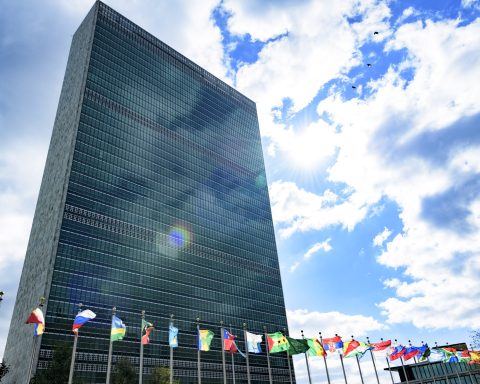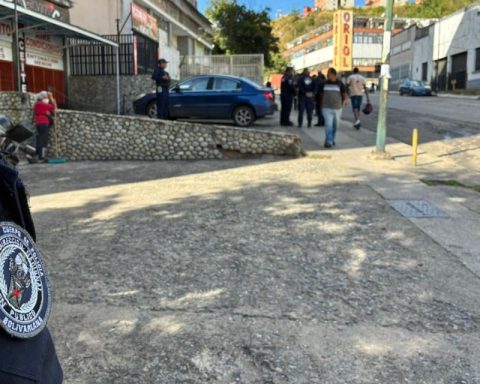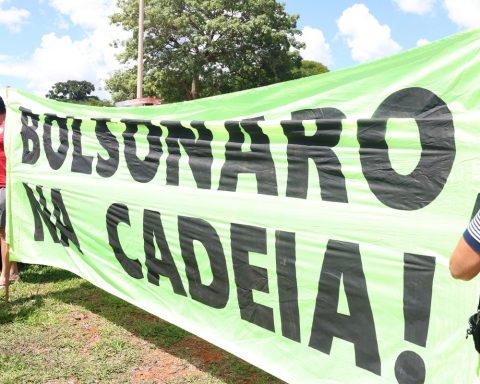SANTIAGO DE CUBA. – In less than a week two women from Santiago were attacked in Havana and Santiago de Cuba. The first, Esther Despaigne, was assaulted and fatally wounded on November 14, in the capital. According to acquaintances, the thieves sought to steal merchandise and money from her, since she was dedicated to the sale of items in the private sector. Her burial took place in the town of La Maya, where she lived.
Five days later, Zaquia Álvarez Pérez, 28, was attacked by her ex-partner in the town of El Cristo. The young woman received multiple machete blows all over her body, but she survived and until today she remains hospitalized. The crime occurred in front of her 10-year-old daughter.
About this latest crime CubaNet found that the perpetrator fled and remains a fugitive. In addition, a source consulted by this medium, on condition of anonymity, assured that the man had already been convicted in the past for a crime of a similar nature. On that occasion he also attacked his partner and a young man who died after receiving 17 machete blows. As a consequence, he was sentenced to eight years in prison, of which he only served four.
“The Police are not doing anything, so much so that the man is still on the loose. But what to expect when he has already killed and got out half the sentence, as if the crime was insignificant? ”, The interviewee asked. “In this country, women are abused and nothing happens,” she also lamented.
Regarding the inefficiency of Cuban legislation to punish acts of sexist violence, which often lead to femicides, CubaNet spoke with lawyer Laritza Diversent, director of the CubaLex Legal Advice Center.
“In Cuba, the lack of protection for women victims of this type of violence is evident. And it is that if the State does not have public policies, and is not energetic enough in terms of the murder of women due to gender issues, and if the sanctions are not proportional to the seriousness of the facts, such crimes will continue to increase ”, Diversent stressed.
In her analysis, the lawyer mentioned the case of Cuban troubadour Fernando Bécquer, who was tried last October for a crime of lascivious abuse against at least six women; although around 30 reported having been abused by him. After 10 months from the first complaints, the musician was sanctioned with five years of “limitation of freedom”, something that, according to Diversent, sends a clear social message that encourages more violence, since the sanctions are not proportional to the seriousness of the facts.
“This lack of political will, for the simple fact of not classifying femicide as a crime, underestimates the seriousness of these crimes in the eyes of society. The fact that crimes based on gender issues are not regulated in a clear and precise way influences society not to become aware and recognize that these types of actions are criminal”, the lawyer highlighted.
This Wednesday, the independent feminist platform YoSíTeCreo in Cuba denounced the situation of the political prisoner Lisandra Góngora Espinosa, sentenced to 14 years in prison for demonstrating during the protests of July 11, 2021. The activist was admitted against her will in a psychiatric hospital to “disqualify his political position”. During her time in prison, she has been beaten and subjected to long periods in punishment cells.
Recently the opposition Keilylli de la Mora Valley she was beaten by an agent on the outskirts of a police unit, where she went to respond to a complaint from a neighbor.
Meanwhile, the Cuban regime insists on ignoring the requests of feminist organizations and the Convention on the Elimination of All Forms of Discrimination against Women (CEDAW) to include femicide as a crime in the Penal Code and approve a Comprehensive Gender Law. In this regard, Diversent is not very optimistic.
“There is still a long way to go before they agree to classify this type of crime in which gender is taken into account as a determining factor for the perpetrator to commit the act based on superiority, in that sense of belonging to another person because he considers it his or hers. lower than him. Precisely gender, sexual orientation and gender identity are usually involved in this assessment to determine whether to exercise violence against the other person, ”she declared.
“While it is true that there have been reforms from a legal point of view, it is also true that they hardly address the issue of gender violence. One is in the Family Code, which includes domestic violence, although with the deficiency that it encompasses all types of violence, that is, it reduces gender violence to domestic or intra-family violence. So, addressing the issue of gender violence in this standard is to reduce it, since there are various types of violence; for example, the institutional one, exercised by the State against women. There is an obvious limitation there.
“The other is the Penal Code that will enter into force on the 1st. December, which does include gender violence as an aggravating factor, for example, in the crime of murder and takes it into account in other criminal figures, such as harassment in the workplace. But it still does not recognize the feminicide”, concluded Diversent.
So far this year, 33 women have been killed for reasons of gender, according to the records of various independent organizations. In 2021, YoSíTeCreo in Cuba verified 36 femicides and 32 in 2020, including four vicarious crimes.
Receive information from CubaNet on your cell phone through WhatsApp. Send us a message with the word “CUBA” on the phone +525545038831, You can also subscribe to our electronic newsletter by giving click here.
















